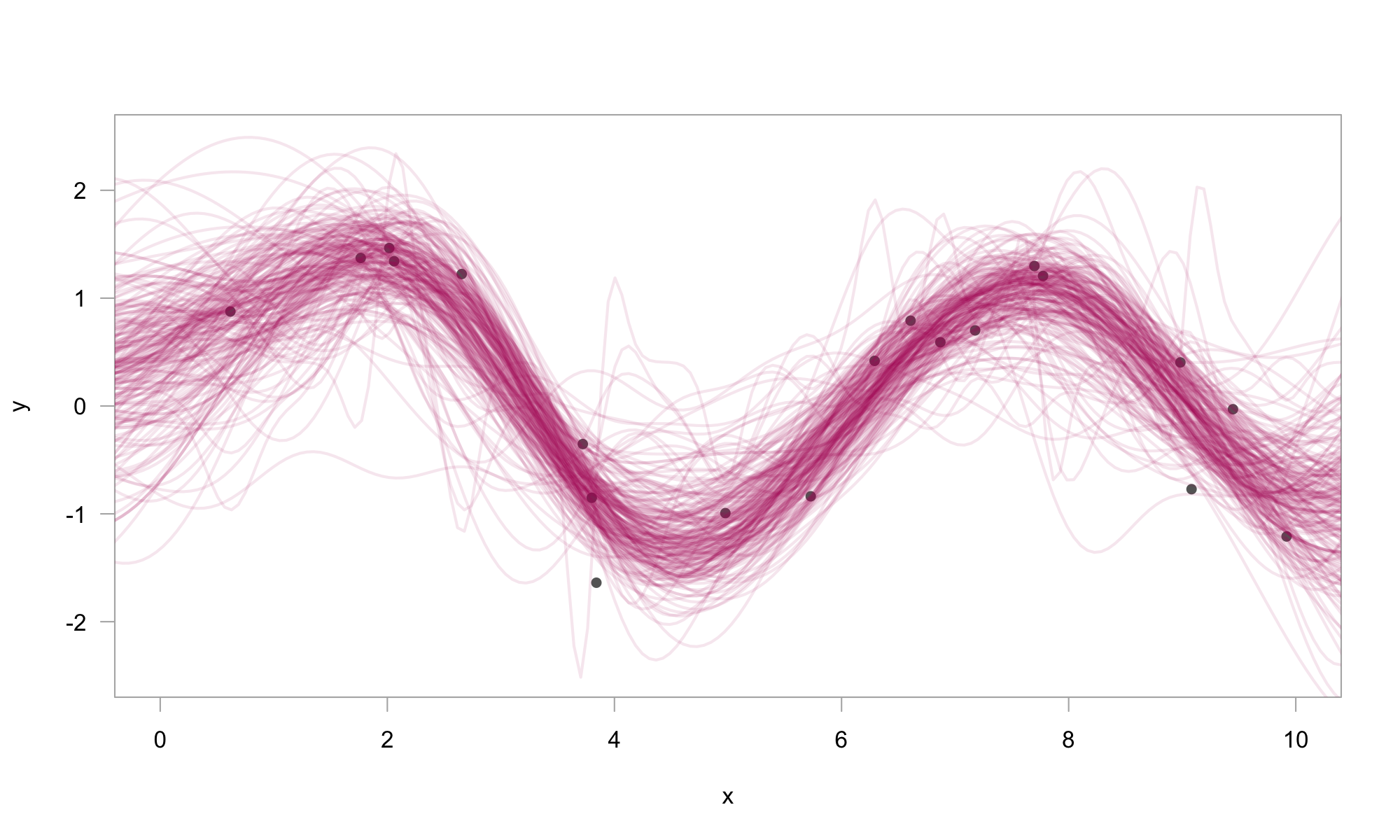The hardware and bandwidth for this mirror is donated by METANET, the Webhosting and Full Service-Cloud Provider.
If you wish to report a bug, or if you are interested in having us mirror your free-software or open-source project, please feel free to contact us at mirror[@]metanet.ch.
gretagreta.gp extends greta to let you define Gaussian
processes as part of your model. It provides a syntax to create and
combine GP kernels, and use them to define either full rank or sparse
Gaussian processes.
You can install the current release version of greta.gp
from CRAN:
install.packages("greta.gp")Or install the development version of greta.dynamics
from r-universe:
install.packages("greta.gp", repos = "https://greta-dev.r-universe.dev")You can also install the development version of greta.gp
via GitHub:
remotes::install_github("greta-dev/greta.gp")# simulate data
x <- runif(20, 0, 10)
y <- sin(x) + rnorm(20, 0, 0.5)
x_plot <- seq(-1, 11, length.out = 200)library(greta)
library(greta.gp)
# hyperparameters
rbf_var <- lognormal(0, 1)
rbf_len <- lognormal(0, 1)
obs_sd <- lognormal(0, 1)
# kernel & GP
kernel <- rbf(rbf_len, rbf_var) + bias(1)
f <- gp(x, kernel)
# likelihood
distribution(y) <- normal(f, obs_sd)
# prediction
f_plot <- project(f, x_plot)# fit the model by Hamiltonian Monte Carlo
m <- model(f_plot)
draws <- mcmc(m, n_samples = 250)# plot 200 posterior samples
# plot 200 posterior samples
plot(
y ~ x,
pch = 16,
col = grey(0.4),
xlim = c(0, 10),
ylim = c(-2.5, 2.5),
las = 1,
fg = grey(0.7),
)
for (i in 1:200) {
lines(draws[[1]][i, ] ~ x_plot,
lwd = 2,
col = rgb(0.7, 0.1, 0.4, 0.1)
)
}
Please note that the greta.gp project is released with a Contributor Code of Conduct. By contributing to this project, you agree to abide by its terms.
These binaries (installable software) and packages are in development.
They may not be fully stable and should be used with caution. We make no claims about them.